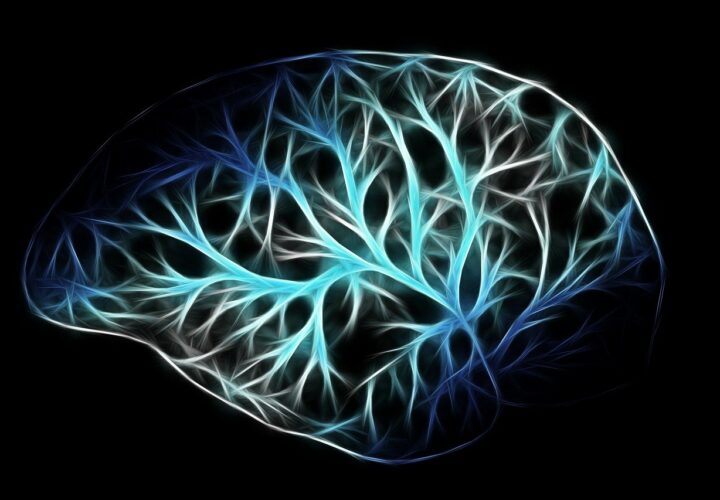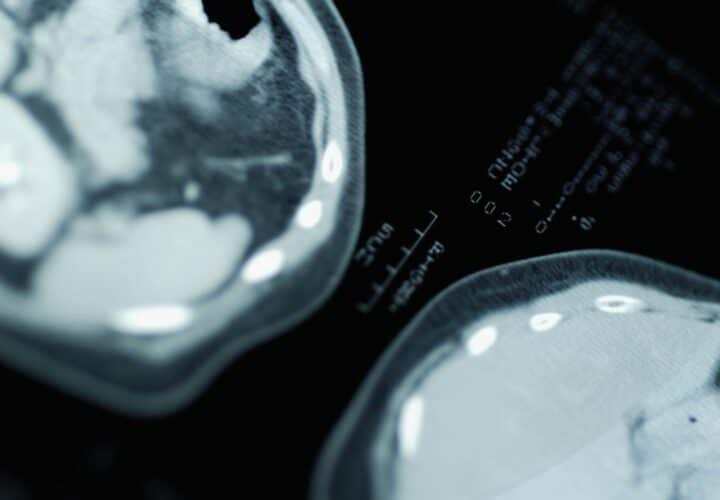Short answer: It's complicated! Many genes increase Alzheimer's risk by some measure. Some genes increase risk by quite a lot. But overall, genetics is only part of the story.
Breakthrough advancements in gene-sequencing technologies have opened up new pathways for understanding health and disease. Scientists can sequence our genetic code to search for genes involved in diseases. In some cases, genes are the key to what causes a disease. For example, carriers of genes like ApoE4, TREM2 and others are thought to have dramatically higher Alzheimer’s risk (at least in some racial groups).
But the more we probe genetics and disease, the more we are learning that when it comes to the majority of diseases and conditions — including Alzheimer’s — a few genes aren’t going to solve the mystery.
How do genes increase Alzheimer’s risk?
While detecting new genes with Alzheimer’s links can make a big news story, about five out of every one hundred cases are attributed to our genetics.
Alzheimer’s is characterized by the deposition of amyloid plaques and tau neurofibrillary tangles in the brain. Some of our genes, or gene mutations, are involved in development and clearance of amyloid plaques. Carrying these genetic markers increases the risk of developing Alzheimer’s. These include PSEN1 and variations on TREM2.
Does this mean Alzheimer’s is genetic? Not quite: The roles of amyloid and tau in Alzheimer’s disease are still shrouded in mystery. And complicating things further, in the other 95 percent of cases, genes don’t drive the disease. They may be part of the story, but their interactions with other aspects of our biology, aging, and the environment are all in play.
The five percent: Strong genetic determinants of Alzheimer’s
There are a few genes that almost certainly will lead to the development of Alzheimer’s. These genes are responsible for about five percent of all cases. All these genetic perpetrators happen to increase the production of amyloid plaques — a key Alzheimer’s biomarker — early in life:
In most people, these genes will lead to an early-onset Alzheimer’s between a person’s late 30s or early 60s. But do these early-onset genes tell us about the underlying cause of Alzheimer’s at large? Scientists still aren’t quite sure.
The tricky part is: There are plenty of people who do develop Alzheimer’s, but who don’t develop this key biomarker of amyloid plaques. Meanwhile, some people with amyloid plaques don’t ever develop the disease, making the link between amyloid and Alzheimer’s tenuous. Some scientists believe that the biology of early-onset Alzheimer’s may involve a different mechanism, other than amyloid, altogether.
So, while there are a few genes that almost certainly will lead to the development of Alzheimer’s, unfortunately that doesn’t solve the mystery of what’s behind the other 95 percent of cases.
The recipe book: ApoE4 and other risk genes
The human genome is like a book of recipes, with each of our 20,000 or so genes serving as a guide to make a specific dish. In some people’s genomes, slight variations in these recipes exist.
Thanks to advances in sequencing technology, we can read the recipe book. So far, however, we do not fully understand each section. Our cells (let’s call them executive chefs) first copy the instructions within the master recipe book before passing on these instructions to their sous chefs (cellular machinery called ribosomes) who make the dish (the protein).
To carry the recipe metaphor further, foods like pufferfish, shark meat, or even rhubarb need to be specially prepared so that they do not poison the eater. Similarly, a small change in the genetic code could make what should be a regular protein damaging or cause it to disrupt an important process.
By far, ApoE4 is the most prominent example of a recipe gone wrong genetic risk factor. Carrying one copy of the gene is known to increase the risk of developing Alzheimer’s, at least in white populations, up to three times, while carrying two copies may increase the risk up to twelve times. If the chef’s instructions to the sous chef are wrong, then the final dish won’t come out right — in some cases like with ApoE4 the mistake sometimes ruins the dish. However, knowing this risk factor hasn’t led to any treatments focused on the gene.
It isn’t entirely clear why this connection exists, because although ApoE4 carries cholesterol in the bloodstream, it does not cross the blood-brain barrier. In the brain, it transports cholesterol synthesized by glial cells to neurons and may lead to an increase in amyloid deposition.
But even genes like ApoE4 are not perfect predictors. Broadly speaking, not everyone with ApoE4 will develop Alzheimer’s in their lifetime, and in a recent study of American Indians, researchers did not find that ApoE4 impacted the risk of developing the disease as it does in other populations. (Many ethnicities are underrepresented in genetic and clinical research studies, making it hard to gauge whether these genetic risk factors hold across different populations.)
By analyzing the genomes of even more people, a new study identified more than 20 new genes that affect the risk of developing Alzheimer’s. While this may improve our predictions of Alzheimer’s risk, these genes still do not better explain the cause of Alzheimer’s, nor do they affect the risk as much as ApoE4.
In Alzheimer’s, genes don’t tell the whole story
When a brain cell decides to make a protein, it first makes a copy of the recipe through a process called transcription. Then this copy is provided to the cell’s chefs, which craft the protein encoded within the gene.
Some researchers believe that the protein itself may be the issue — a sticky misfolded amyloid protein can bind to other healthy amyloid proteins and cause a cellular mess. Amyloid plaques and tau proteins may spread by converting healthy versions of the protein into misfolded forms. This is still a highly contested idea however.
Other scientists focus on the scribbles and junk that accumulate within the recipe book over time. The onset of Alzheimer’s could be induced by a viral infection or non-protein coding genes — the so-called genomic dark matter. But no single explanation has substantial explanatory power.
Alzheimer’s is an extremely complex disease that emerges in aging, along with wear and tear to the body (and brain) and a bevy of genetic and other environmental contributors. The role of these genetic risk factors is uncertain, but plenty of other lifestyle factors such as diet, and exercise are modifiable. Understanding the interaction between these genetic and environmental factors is key to developing new treatments.






[[ have the Apoe4/Apoe4 Gene but have been diagnosed with CAA Cerebral Amyloid Angiopathy ri related inflammation will any of these “studies” help this type of condition.